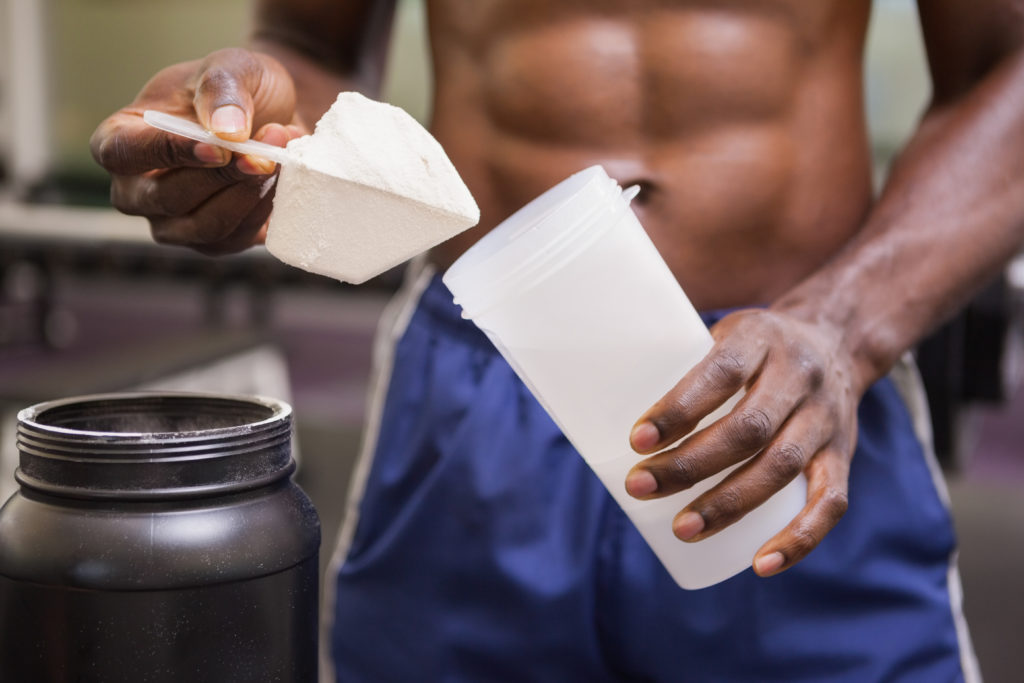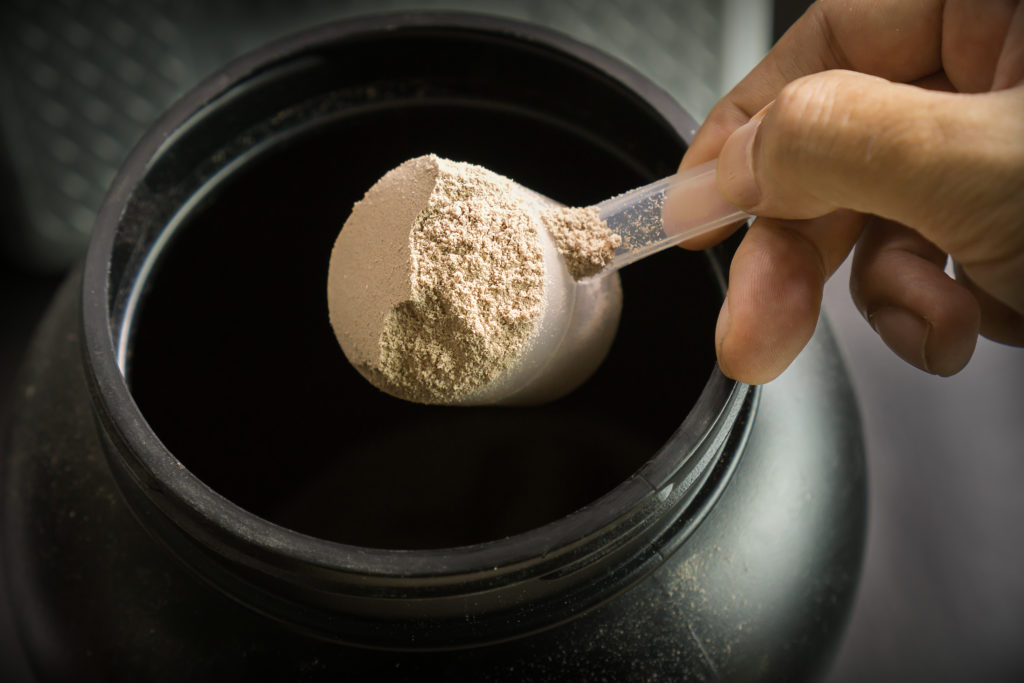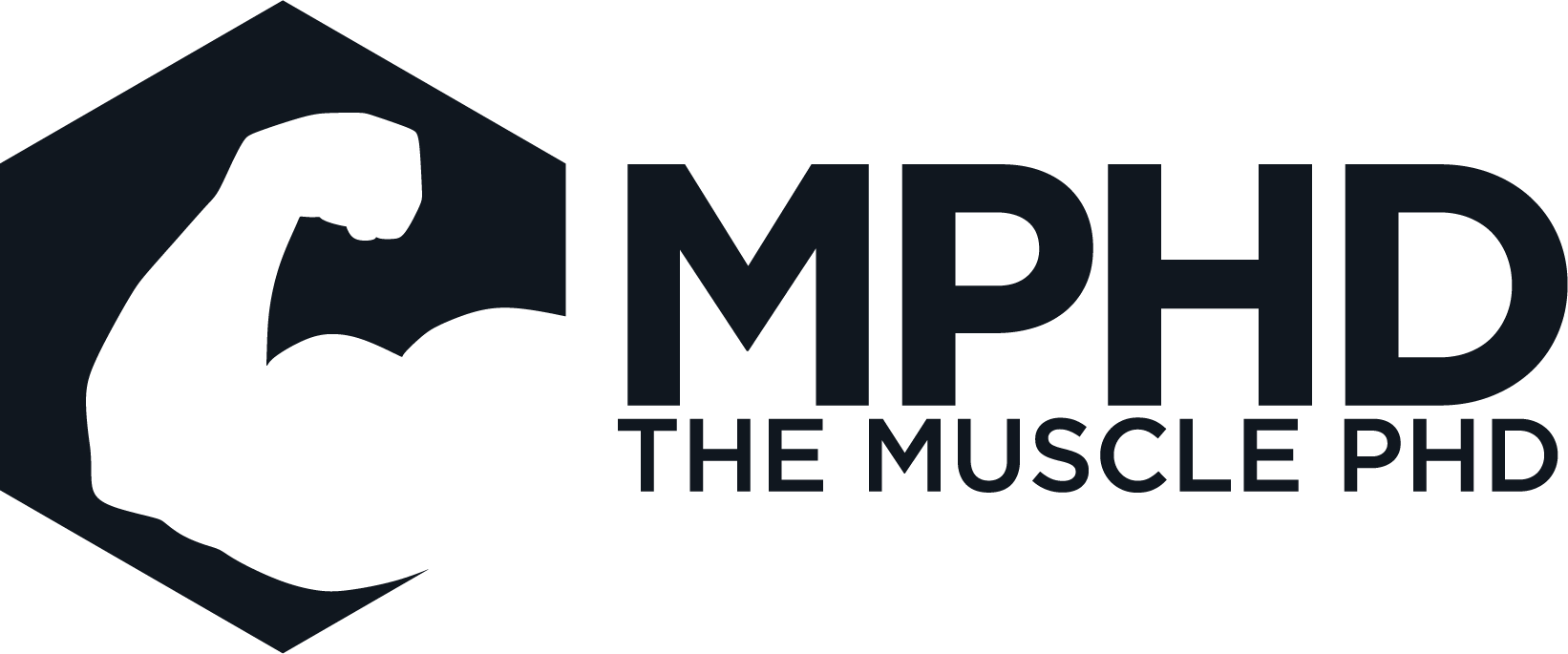Introduction
There are several factors to consider when designing a diet for maximizing growth or fat loss or whatever your personal goals are. Nutrient timing is one of these elements that has become a little more controversial over the past few years, with many in the field claiming that timing really isn’t that important. However, this can be a short-sighted way of looking at the bigger picture, so let’s dive in to the details.
Protein Timing
Optimizing protein timing is certainly one strategy that can help promote greater gains. However, it is important to first discuss the order of importance of nutrition factors when considering protein:
 1.Total Daily Intake: Total daily protein intake is still the most important component of dietary protein intake (12). Emphasizing protein timing and types of protein consumed will likely not lead to massive gains if total daily intake of protein is less than adequate. Total daily intake will also need to be based on training goals, as greater intakes are required to optimize body composition during periods of caloric restriction (6).
1.Total Daily Intake: Total daily protein intake is still the most important component of dietary protein intake (12). Emphasizing protein timing and types of protein consumed will likely not lead to massive gains if total daily intake of protein is less than adequate. Total daily intake will also need to be based on training goals, as greater intakes are required to optimize body composition during periods of caloric restriction (6).
2.Type of Protein Consumed: Another component worth considering before timing is the type of protein one is ingesting – especially if the goal is to support muscle growth. It is well-known that animal-based proteins have a greater anabolic potential than plant-based proteins due to greater leucine and EAA content and improved digestibility (18). Therefore, focusing on timing over type of protein may still lead to inadequate total daily intake, especially if one is consuming a plant-based diet.
If one chooses to consume a plant-based diet with the goal of maximizing muscle gains, then we are essentially back to step 1. Plant-based proteins can be as effective as animal-based proteins for supporting growth, albeit, plant proteins will need to be consumed to a greater degree so as to meet the leucine threshold for maximizing muscle protein synthesis. 24 grams of whey protein will maximize this threshold; however, 36 grams of rice protein would be required to reach the same protein synthesis response (7) since plant-based proteins will have a much lower leucine content.
If you’re interested in more information regarding protein sources, check out our Plant vs. Animal Protein article here for a more in-depth discussion on the topic.
3.Timing: Protein timing is the last factor to focus on when planning protein intake for supporting gains and/or body composition goals. While timing can certainly play a role in overall training gains, emphasizing timing over total daily intake or type of protein intake would not be a wise decision as timing is likely not as important as the other two. However, several researchers recommend that protein be consumed shortly after training to take advantage of the, “anabolic window,” AKA, the period following training in which protein synthesis rates spike (1,6,8,13).
Protein timing may also increase in importance as individuals gain more training experience. One study found that resistance training experience actually shortened the anabolic window, even after only 8-weeks of training (15). Untrained individuals may see increases in protein synthesis rates for up to 24-48 hours, whereas trained individuals see protein synthesis rates drop within 4-hours of training.
Therefore, if you have all of your bases covered as far as total daily intake and protein sources go, focusing on timing can be one unique method of boosting gains. With this in mind, do your best to get a high-quality protein source in as soon as you can following your workout. Not only will this help maximize the anabolic response to training, but it’s also an easy method of simply spending more time recovering following training.
Pre-Workout Protein
Pre-workout protein timing is another unique strategy that many athletes and/or bodybuilders often utilize to promote gains. However, at least from a physiological standpoint, this method would likely not offer a ton of benefit unless specific criteria are met (13):
 1.Individuals on Low Carb Diets: A low carb diet, or even a calorie restricted diet, will obviously reduce energy stores, and consuming protein pre-workout will provide energy to maintain performance during training.
1.Individuals on Low Carb Diets: A low carb diet, or even a calorie restricted diet, will obviously reduce energy stores, and consuming protein pre-workout will provide energy to maintain performance during training.
2.Individuals Training Again Within 24-hours: Pre-workout protein or EAA consumption has been shown to reduce muscle damage and soreness (13) which may improve the quality of training sessions for individuals undergoing frequent training. This can be useful for endurance athletes or sports like Olympic weightlifting in which the same muscle groups and/or movement patterns are often trained multiple times within a 24-36-hour period
3.Beginners or People who Hate Being Sore: Very similar to the second point – since pre-workout protein intake can reduce muscle damage and soreness, beginners or people who don’t tolerate DOMS very well may benefit from pre-workout protein intake.
Overall, pre-workout protein isn’t necessary for gains and oftentimes we’ll see individuals struggle with the bubble guts any time they down a protein shake before training. Consuming EAAs or BCAAs is another option, however, unless you meet one of the above criteria, it’s probably not necessary. One last consideration is that consuming protein before your workout is one method of adding to your total daily intake. If you typically don’t consume protein before training and your total daily intake is less than optimal, adding protein to this period may be one strategy to boost daily intake.
Carbs and Bodybuilders/Strength Athletes
The importance of carbohydrate timing for endurance athletes is well-documented; it’s pretty much common knowledge that consuming carbs following an endurance training session will help restore muscle glycogen levels to maintain training performance between frequent sessions throughout the week (8). However, carb timing for bodybuilders and strength athletes contains many factors and is, frankly, much more interesting (not biased at all, right?).
Carbohydrate needs for endurance athletes are often mistakenly applied to bodybuilders and strength athletes who do not need nearly as large an intake (4). In fact, carbohydrate availability is rarely a limiting factor in resistance training performance (4,5,13) and might only negatively impact high volume sessions lasting longer than one hour (5).
In addition, one study found that muscle glycogen stores were 75% replenished 6-hours after a resistance training session even with no carbohydrate intake following training (10). Since the majority of bodybuilders and strength athletes allow 48-72 hours between training sessions for individual muscle groups (6), stressing carbohydrate intake following resistance training likely isn’t as important as protein.
One potential caveat to this thought is the effect of carbohydrate ingestion on insulin and how this increase in insulin can help reduce muscle protein breakdown. While carbohydrate ingestion alone following training has been shown to somewhat reduce muscle protein breakdown following resistance exercise (2), this reduction in protein breakdown does not promote an overall positive net protein balance (19). Protein balance is determined based off of the balance between protein synthesis and protein breakdown – increasing protein synthesis rates past the rate of protein breakdown results in a positive protein balance, which is necessary for muscle growth (17).
So why do carbs not create a positive protein balance? Carbohydrate ingestion alone does not promote muscle protein synthesis and, therefore, will not result in a positive protein balance and will not support muscle growth. While insulin can certainly play a role in protein balance, interestingly enough, whey protein has been shown to be just as insulinogenic as white bread (11). This is likely why we have studies that show no increase in protein synthesis or improvement in protein balance when carbohydrate is added to protein following training (9,14,19).
Post-Workout Carbs
Therefore, since a high total carbohydrate intake does not appear to be necessary for strength athletes, can carb timing still play a role? It appears to depend on the training needs. For most bodybuilders or powerlifters, post-workout carb intake isn’t nearly as important as protein, as these individuals typically have plenty of rest for muscle groups and/or motor patterns. Most bodybuilders and powerlifters are probably perfectly fine consuming 0.5 grams of carbs per kilogram of bodyweight following training (5), however, there’s not much of a rush to get these carbs in, as studies show that muscle glycogen can be replenished even without consuming carbs (10).
 On the flip side, individuals who are training the same muscle groups or motor patterns within 24-hours, such as weightlifters, strongmen, or even CrossFitters, will likely benefit more from eating carbs following training than bodybuilders or powerlifters. Again, the amount of intake would depend on individual needs and training goals and would range anywhere from 0.5-1.2g/kg of bodyweight twice within 4-hours of ending your workout (13).
On the flip side, individuals who are training the same muscle groups or motor patterns within 24-hours, such as weightlifters, strongmen, or even CrossFitters, will likely benefit more from eating carbs following training than bodybuilders or powerlifters. Again, the amount of intake would depend on individual needs and training goals and would range anywhere from 0.5-1.2g/kg of bodyweight twice within 4-hours of ending your workout (13).
The type of carbs you consume following training will also depend on your goals and when your next training session is. Studies show that high glycemic index carbs (like most simple carbs) are more effective at promoting glycogen replenishment within a 24-hour period (3). However, unless you’re training again within 24-hours, this strategy really isn’t necessary. Low GI (typically complex) carbs will be perfectly fine for replenishing glycogen when you have a full 48-72 hours rest for each muscle group.
Pre-Workout Carbs
Carbs can also be consumed before your workout but, again, it entirely depends on your goals. Like we said before, carbohydrate availability really isn’t a limiting factor for most resistance training sessions (4,5,13). However, if you’re in a super high-volume block in which you’re training for more than an hour at a time, consuming some carbs before your workout may help you achieve more volume and, ultimately, make more gains.
If this is you, shoot for about 30-45 grams of carbohydrate an hour before training (5). This will likely be plenty to help push you past the proverbial wall you might usually hit an hour or so into a high-volume session. This can also help improve your pumps and vascularity during your training session – I think we can all agree that, secretly, this is extremely important…
Are pre-workout carbs necessary? No. No diet practice is necessary – we know that nutrition can be incredibly individualized and there’s no such thing as a one-size-fits-all diet (6). Therefore, give pre-workout carbs a shot if you fit into the long session, high volume training category.
Conclusion
For lifters simply looking to increase strength or muscle mass, protein intake is certainly more important than carbohydrate – for both total daily intake and timing-specific strategies. Remember, timing only becomes important once you have all of the other factors down-pat; total daily intake is still king for driving gains, and if you don’t have that optimized, timing isn’t going to help you. Nutrition factors, such as timing, are just like many of the training variables we speak about. Use these things as tools to support your goals, rather than laws.
References
- Aragon, A. A., & Schoenfeld, B. J. (2013). Nutrient timing revisited: is there a post-exercise anabolic window? Journal of the International Society of Sports Nutrition, 10(1), 5.
- Børsheim, E., Cree, M. G., Tipton, K. D., Elliott, T. A., Aarsland, A., & Wolfe, R. R. (2004). Effect of carbohydrate intake on net muscle protein synthesis during recovery from resistance exercise. Journal of Applied Physiology, 96(2), 674-678.
- Burke, L. M., Collier, G. R., & Hargreaves, M. (1993). Muscle glycogen storage after prolonged exercise: effect of the glycemic index of carbohydrate feedings. Journal of Applied Physiology, 75(2), 1019-1023.
- Escobar, K. A., VanDusseldorp, T. A., & Kerksick, C. M. (2016). Carbohydrate intake and resistance-based exercise: are current recommendations reflective of actual need? British Journal of Nutrition, 116(12), 2053-2065.
- Haff, G. G., Lehmkuhl, M. J., McCoy, L. B., & Stone, M. H. (2003). Carbohydrate supplementation and resistance training. Journal of Strength and Conditioning Research, 17(1), 187-196.
- Helms, E. R., Aragon, A. A., & Fitschen, P. J. (2014). Evidence-based recommendations for natural bodybuilding contest preparation: nutrition and supplementation. Journal of the International Society of Sports Nutrition, 11(1), 20.
- Joy, J. M., Lowery, R. P., Wilson, J. M., Purpura, M., De Souza, E. O., Wilson, S. M., … & Jäger, R. (2013). The effects of 8 weeks of whey or rice protein supplementation on body composition and exercise performance. Nutrition Journal, 12(1), 86.
- Kerksick, C. M., Arent, S., Schoenfeld, B. J., Stout, J. R., Campbell, B., Wilborn, C. D., … & Willoughby, D. (2017). International society of sports nutrition position stand: nutrient timing. Journal of the International Society of Sports Nutrition, 14(1), 33.
- Koopman, R., Beelen, M., Stellingwerff, T., Pennings, B., Saris, W. H., Kies, A. K., … & Van Loon, L. J. (2007). Coingestion of carbohydrate with protein does not further augment postexercise muscle protein synthesis. American Journal of Physiology-Endocrinology and Metabolism, 293(3), E833-E842.
- Pascoe, D. D., Costill, D. L., Fink, W. J., Robergs, R. A., & Zachwieja, J. J. (1993). Glycogen resynthesis in skeletal muscle following resistive exercise. Medicine and Science in Sports and Exercise, 25(3), 349-354.
- Salehi, A., Gunnerud, U., Muhammed, S. J., Östman, E., Holst, J. J., Björck, I., & Rorsman, P. (2012). The insulinogenic effect of whey protein is partially mediated by a direct effect of amino acids and GIP on β-cells. Nutrition & Metabolism, 9(1), 48.
- Schoenfeld, B. J., Aragon, A. A., & Krieger, J. W. (2013). The effect of protein timing on muscle strength and hypertrophy: a meta-analysis. Journal of the International Society of Sports Nutrition, 10(1), 53.
- Slater, G., & Phillips, S. M. (2013). Nutrition guidelines for strength sports: sprinting, weightlifting, throwing events, and bodybuilding. In Food, Nutrition and Sports Performance III (pp. 75-86). Routledge.
- Staples, A. W., Burd, N. A., West, D. W., Currie, K. D., Atherton, P. J., Moore, D. R., … & Phillips, S. M. (2011). Carbohydrate does not augment exercise-induced protein accretion versus protein alone. Medicine and Science in Sports and Exercise, 43(7), 1154-61.
- Tang, J. E., Perco, J. G., Moore, D. R., Wilkinson, S. B., & Phillips, S. M. (2008). Resistance training alters the response of fed state mixed muscle protein synthesis in young men. American Journal of Physiology-Regulatory, Integrative and Comparative Physiology, 294(1), R172-R178.
- Tee, J. C., Bosch, A. N., & Lambert, M. I. (2007). Metabolic consequences of exercise-induced muscle damage. Sports Medicine, 37(10), 827-836.
- Tipton, K. D. (2017). Branched-chain amino acid supplementation to support muscle anabolism following exercise. Sports Science Exchange, 28, 1-6.
- van Vliet, S., Burd, N. A., & van Loon, L. J. (2015). The skeletal muscle anabolic response to plant-versus animal-based protein consumption. The Journal of Nutrition, 145(9), 1981-1991.
- Witard, O. C., Cocke, T. L., Ferrando, A. A., Wolfe, R. R., & Tipton, K. D. (2013). Increased net muscle protein balance in response to simultaneous and separate ingestion of carbohydrate and essential amino acids following resistance exercise. Applied Physiology, Nutrition, and Metabolism, 39(3), 329-339.
From being a mediocre athlete, to professional powerlifter and strength coach, and now to researcher and writer, Charlie combines education and experience in the effort to help Bridge the Gap Between Science and Application. Charlie performs double duty by being the Content Manager for The Muscle PhD as well as the Director of Human Performance at the Applied Science and Performance Institute in Tampa, FL. To appease the nerds, Charlie is a PhD candidate in Human Performance with a master’s degree in Kinesiology and a bachelor’s degree in Exercise Science. For more alphabet soup, Charlie is also a Certified Strength and Conditioning Specialist (CSCS), an ACSM-certified Exercise Physiologist (ACSM-EP), and a USA Weightlifting-certified performance coach (USAW).




